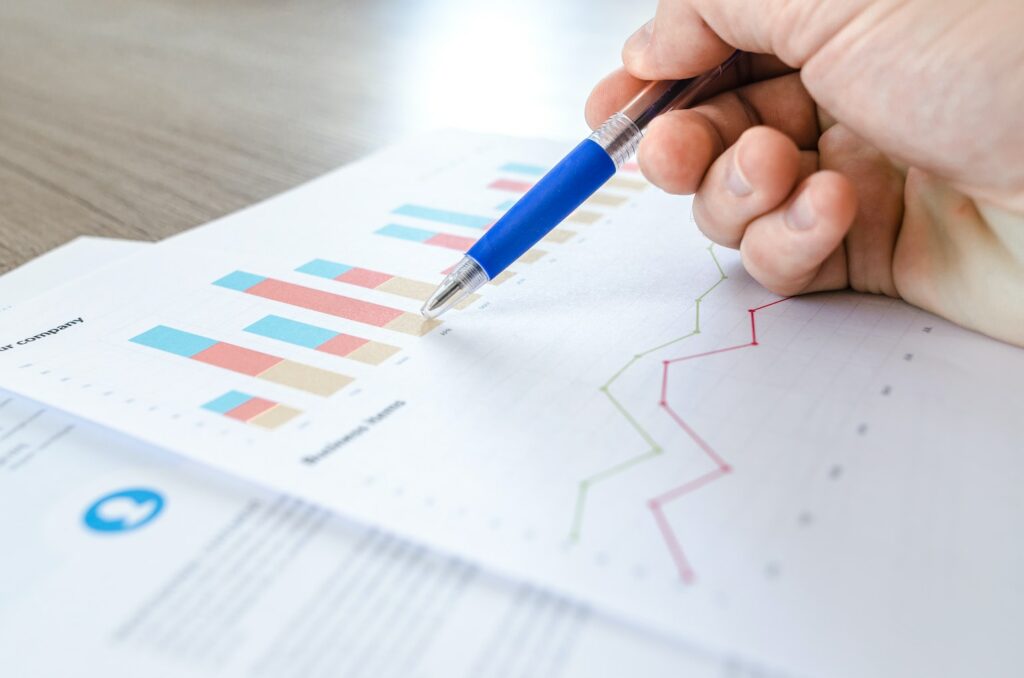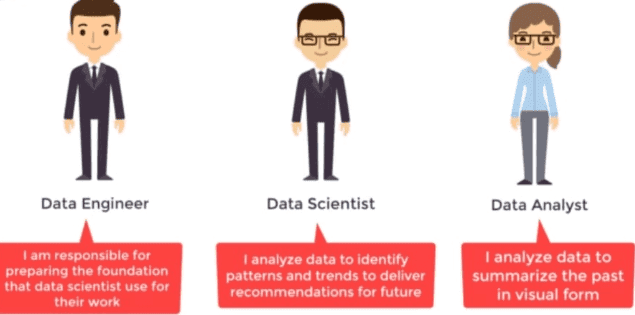What is data science? The field of data science is all about predicting the future and solving complex problems using massive amounts of, you guessed it…data!
Data science projects combine math, statistics, programming, AI/machine learning, and other technologies to uncover insights hidden in massive amounts of data.
In this post, I’ll explain exactly what data science is, why data science is important, what it’s used for, how it works, what the differences between data science vs data analytics are, and some resources to help you learn data science.
Table of Contents
- What Is Data Science?
- Why Data Science Is Important
- Data Science vs Data Analytics vs Data Engineering
- What is Data Science Used For?
- Data Science as a Career
- The Data Science Process
- Skills Needed
- How to Learn Data Science
Disclosure: I’m a proud affiliate for some of the resources mentioned in this article. If you buy a product through my links on this page, I may get a small commission for referring you. Thanks!
What Is Data Science?
Data science definition: Data science is an interdisciplinary field that involves processing and extracting knowledge and insights from structured and unstructured data, and then using those learnings to make important business decisions. It’s an “interdisciplinary” field because it draws from many different fields, like mathematics, computer science, data analysis, machine learning, and more.
The origin of data science can be traced back to several events across different decades. If you’re interested in the history, here’s the quick timeline!
- 1962: John Tukey, an American mathematician and statistician, described concepts we understand today as data science — but he called it “data analysis”!
- 1985: The actual term “data science” was first used as an alternative name for statistics by C.F. Jeff Wu, who was giving a lecture to the Chinese Academy of Sciences in Beijing.
- 2001: The emergence of data science as an independent discipline is sometimes attributed to William S. Cleveland, an American computer scientist, who wrote a paper in 2001 about it.
All in all, data science as a field has been around since the 60s, but wasn’t really referred to as “data science” until the 80s and only rose to popularity in the early 2000s.
☝️ Back to the table of contents
Why Data Science Is Important
Data science is an incredibly important field, especially today. Companies have more data than ever before — so much so that it’s often called “big data.” Tons of data sources, large volumes of data, and the speed of its movement have led to such complex data sets that it’s impossible to make sense of them manually or even with the help of data processing software.

But hidden in this massive amount of data are interesting insights that can lead to more efficiency, help companies develop new products, improve customer satisfaction, maximize profits, and much more.
That’s where data science comes in. Data science allows companies to recognize patterns and trends in data, make informed decisions, and even predict behavior. Netflix, for example, may leverage data science to anticipate customer demand. A manufacturing facility may use data science to predict mechanical failures and fix them before they even happen.
Data scientists are responsible for breaking down big data into usable information and creating software and algorithms that help companies and organizations make the optimal decisions.
That said, it’s not just data scientists that can use this knowledge. All kinds of employees can benefit from knowing data skills — product, marketing, customer services, and more!
☝️ Back to the table of contents
Start coding now
Stop waiting and start learning! Get my 10 tips on teaching yourself how to code.
Computer Science vs Data Science vs Data Analytics vs Data Engineering
On a high level, you can think of data science vs computer science as unique fields. Computer science encompasses fields like software and web development, while data science is all about data computing, statistics, and math.

So what’s the difference between data science vs data analytics/analysis? What about data engineering? Although they all belong to the same family, they’re a bit different.
Data analytics vs data science
Data analysis is all about the actual process of analyzing and interpreting data, while data science is often about finding methods to analyze the data better.
Data analysis is often more backward looking and answers the question: “What happened?” Meanwhile, data science is more forward looking and asks: “Given the trends we’ve seen before, what will happen in the future?”
Data science is also more advanced than data analysis. In other words, a data scientist can do a data analysis role, but the opposite is not always true. It might be helpful to think of data analysis as a more entry-level-friendly data science (although data analysis can be a career in its own right).
Data science vs data engineering
Data engineering, meanwhile, is all about developing, testing, and maintaining the analytics infrastructure that underlies data functions (e.g., databases, large-scale processing systems).
Data engineers basically work with raw data sources to develop/maintain a database that can then be used by data scientists. They essentially prepare data for data scientists.

☝️ Back to the table of contents
What is Data Science Used For?
Data science is used (or can be used) in nearly every industry and company you can think of. Here are some use cases for data science projects across a variety of industries:
- 🛍️ Retail: How is data science used in retail? It can be used to optimize pricing, personalize marketing for customers, detect fraud, determine the best location for a new store, etc.
- ✈️ Travel: In the travel industry, data science can be used to optimize routes, recommend hotels, analyze how customers feel about an airline or hotel, etc.
- 🏭 Manufacturing: Use cases include predictive maintenance, demand forecasting, inventory management, managing supply chain risk, and more.
- 🏥 Healthcare: Detect chronic diseases at an early stage, deliver more precise prescriptions, assist with the emerging field of gene therapy, speed up the process of drug discovery, etc.
- 🦏 Wildlife biology: Random, yes, but a good way to show just how many industries data science can touch. Data science can be used to aid in conservation efforts, understand how environmental variables affect wildlife, and more.
Think about the industry you currently work in (or your dream industry). What are some ways they could use data science to improve how they operate?
☝️ Back to the table of contents
Data Science as a Career
Being a data scientist can be highly rewarding. You make sense of data that otherwise wouldn’t make sense, and can drive real change through predictions and analysis.
💰 The average salary for a data scientist in the United States is $120,092 per year, making it a highly lucrative field, too!
Check out this podcast episode on where beginners should start when they’re first looking to enter the field of data science. When you’re looking into how to get a job in data science, just know that you’ll likely be working your way up. It can be easiest to start in data analysis, then move into data science as you adjust to the field and gain skills.

☝️ Back to the table of contents
The Data Science Process
What does the data science process look like? Here’s a quick breakdown:
- Identify the problem: Does the company want to save money? Learn more about a customer’s behaviors? The first step is like outlining a draft of your goals for the project. Doesn’t have to be well-defined, but just an idea.
- Collect raw data: Gather the data needed to solve or learn more about the problem.
- Clean & process the data: Once you have the messy, raw data, it’s time to clean it up and process it to get it ready for analysis.
- Exploratory analysis: To get an idea of what kind of model to use to find the insights you’re looking for (or to answer the questions you have). Look for patterns, trends, etc. to come up with ideas for ways to solve the problem.
- Model building/deployment: Pick the model that fits the data and can answer the questions you have.
- Communicate the results. This is often where data visualization comes in. Package the data in a way that makes sense to non tech-savvy people. Provide insights that the business can use to improve/solve the problem.
Many data science projects will follow this general process, but every job is different and it’s also important to be flexible and willing to learn!
☝️ Back to the table of contents
What Skills Do I Need For Data Science?
Here are the main skills involved in data science:
- 👩💻 Programming: The most common coding languages you’ll need to learn are Python for data science or R for data science, as well as SQL.
- ➗ Math: Including statistics, linear algebra, and calculus. Not good at math? No problem, if you’re willing to put the effort in! Check out this post on how to become a data scientist without a background in math.
- 📊 Data visualization: Turn data into charts and graphs that can be easily understood by various stakeholders. Learn more about data visualization.
- 🤖 Machine learning: Machine learning techniques such as supervised machine learning, decision trees, logistic regression, etc. Here are 13 machine learning courses to get you started.
You’ll also need soft skills like communication and teamwork, since you may be working closely with data engineers and analysts (or need to present your work to others in easily understandable terms).
☝️ Back to the table of contents
Want to master Python?
Then download my list of favorite Python learning resources.
How to Learn Data Science
Looking to jumpstart a career in data science or just learn a little more about the topic? Here are a few courses to get you started:
- Beginning Data Science Track on Team Treehouse: This track starts by teaching the basics of data analysis and moves through more advanced data science topics like how to install and use Anaconda, Python, SQL, and even machine learning basics.
- Applied Data Science Specialization by IBM via Cousera: In this 5-course specialization, learn Python and how to analyze and visualize data.
- The Data Science Course 2021: Complete Data Science Bootcamp on Udemy: Over the course of 476 lectures, learn the entire toolbox you need to become a data scientist. No prior experience required.
For even more options, check out my round-up of top data science courses and books.
Struggling to get started? Check out this podcast episode on how to teach yourself data science — including how to create your own personalized data science master’s program and stay on track towards your learning goals.
And if you’re looking for some more inspiration, listen to how this teacher became a data scientist in under two years!
🌟 Will the next data science success story be yours? If you have an analytical mind and love using tech to turn information into useful insights, it’s hard to imagine a better career.

